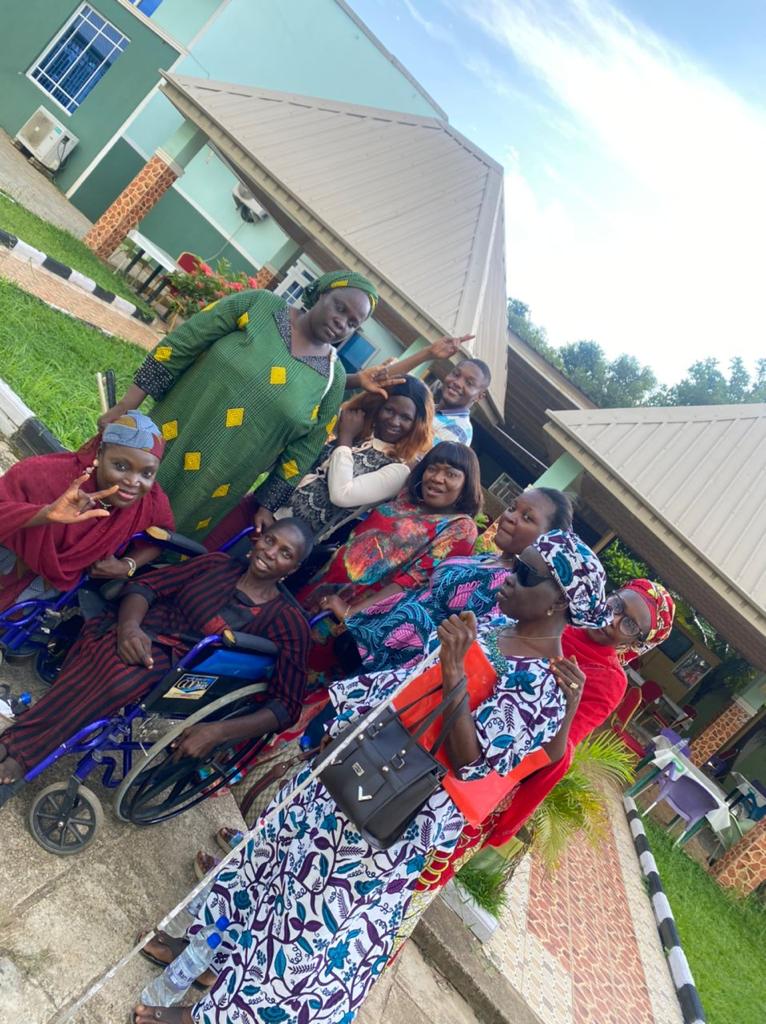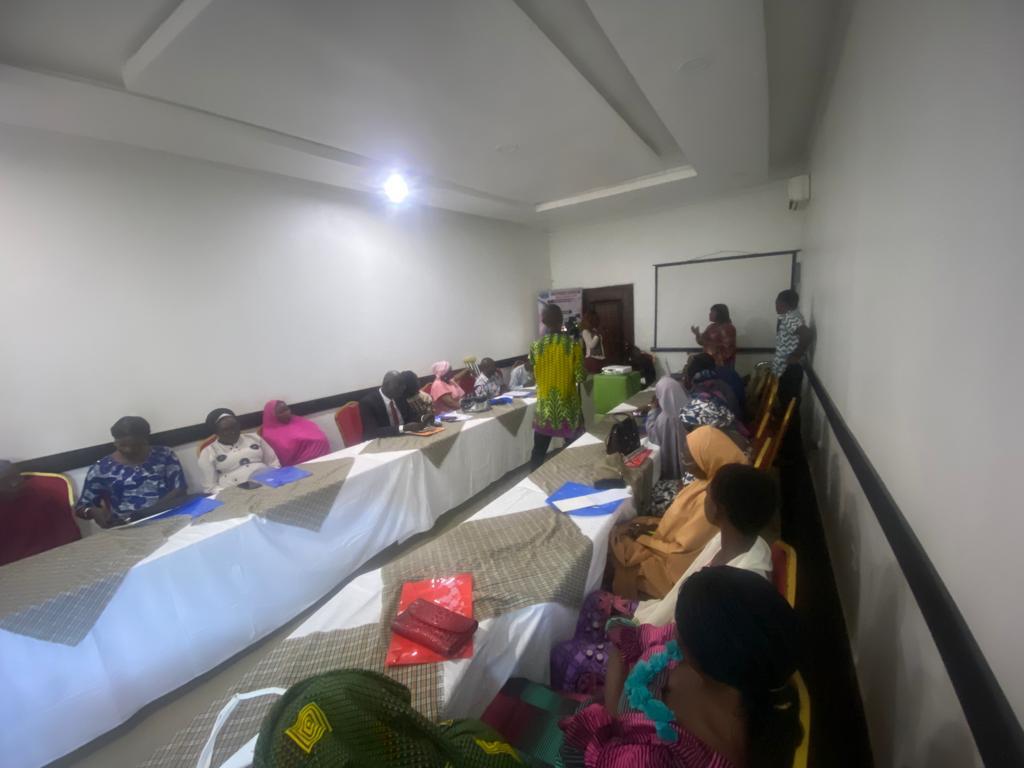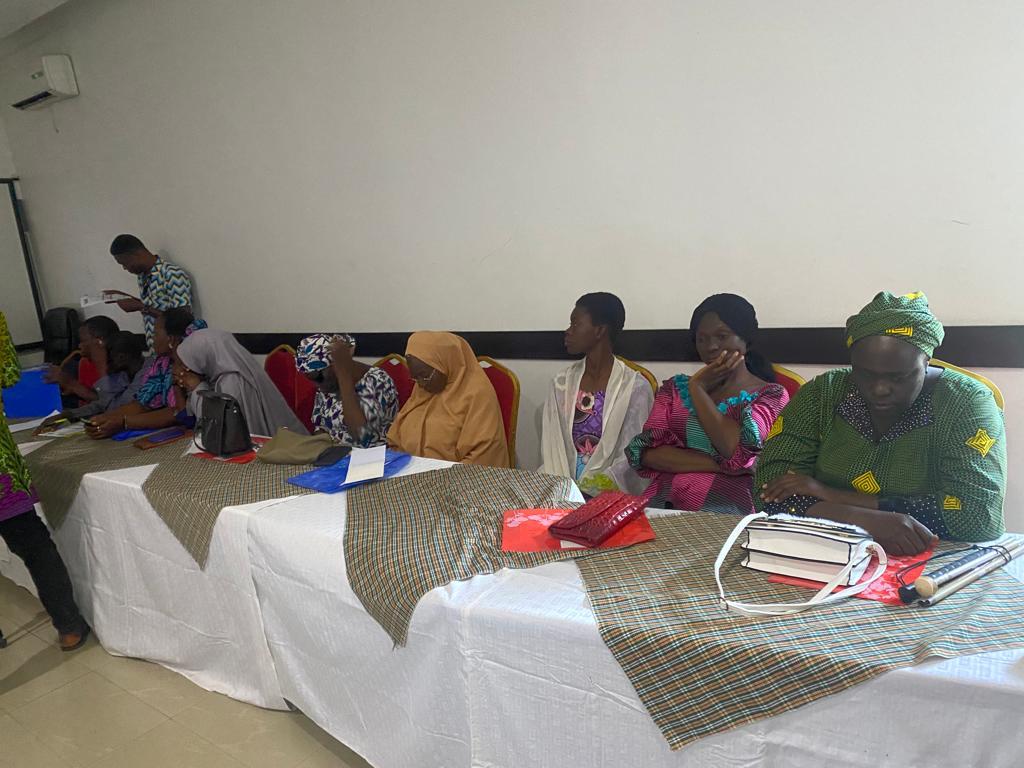On Wednesday, July 6th 2022, Voice of Disability Initiative (VDI) orgnized a one-day training workshop to sensitize stakeholders and the community of persons with disabilities in Keffi on right-based advocacy and policy influencing.
The workshop is part of the the activities under VDI project supported by Disability Rights Fund (a disability rights advancement organization headquartered in Boston USA).
The Executive Director of VDI, Barr Catherine Edeh declared the workshop open where she acknowledge all participants present and urged them to apply the knowledge acquired.
The first presentation was delivered by Mr Damian Ivom, a disability expert. He talked extensively about the Concept and Principles of Disability Rights Advocacy and Policy Influencing strategies, explaining the concept of disability and impairment and the difference between the two definitions. He also looked at barriers to disability inclusion, which include: attitudinal, physical, communication, environmental, and policy. He continued with the definition of social policy, which he defined as an inclusive disciplinary, which means to provide solutions to address the needs of social life.
The presentation continued with a series of questions and comments which were all correctly attended to.
Mr Ifeanyi Umah, a masters degree holder in Special Education took the participants on the second presentation on Acceptable Terms and PWD-friendly Languages in Media Reporting. Representatives of each cluster of persons with disability were asked the way they prefer society to address them. Barr Catherine said she prefers to be addressed as Deaf likewise Miss Bridget preferred to be called Deaf. The same went with women with visual impairment who asserted they preferred to be addressed as Blind but in academics, visual impairment is mostly accepted.
Advertisement

Moses Yusuf, one of the media crew said he needed clarification on the use of the term “physical challenge” which he believed to represent all forms of Disability and Barr Catherine in her response explained that the term “physical challenged” can be used to refer to those with visible physical disability like those on wheelchairs, those with spinal cord injury, polio survivors, amputees, etc, while “People with Disability” initialized as PWDs is a generic term used to connote all forms of Disability and to refer to all people with diverse forms of disability.
The speaker Mr Umah then concluded that the media as vital instrument in raising awareness and countering stigma and misinformation. It can be a powerful force to change societal misconceptions and present persons with disabilities as individuals that are a part of human diversity, therefore need to work in tandem with our community’s ideals and beliefs to achieve stated objectives.
Barr Catherine Edeh in her presentation exposed the participants to the different sanctions for different offenses and sanctions provided for, by the Act, urging stakeholders present, especially the media, to raise more awareness on the Act, so that compliance with the provisions of the Act is become noticeable, as the transitory period provided by and for the Act will end next year.
Dr Jonathan who represented the Chief Medical Director of Federal Medical Center Keffi urged persons with disabilities to be proactive and not wait until a building is erected before lodging complaints, rather should notify the stakeholders ahead whenever they sensed that there is a construction going on in the society that does not conform with accessibility standards.
One of the media crew asked if those persons with disabilities have no right to be sanctioned if they go against the law, Barr Catherine replied that no one is above the law,, therefore people with disabilities who contravenes the provisions of the law should also be made to face the dire consequences.
She further stressed on the need for prisons and correctional centres to be accessible and inclusive to accommodate offenders with disabilities who are serving terms of imprisonment handed by courts of competent jurisdiction.
At the end, VDI team expressed joy over the feedbacks describing it as amazing because many of the participants were excited on the level of knowledge acquired.








